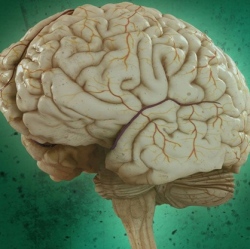
The tiny addition of a chemical mark called called a methyl group atop a gene that is well known for its involvement in clinical depression and posttraumatic stress disorder can affect the way a person’s brain responds to threats, according to a new study by Duke University researchers.
The study results, published August 3 in Nature Neuroscience, go beyond genetics to help explain why some individuals may be more vulnerable than others to stress and stress-related psychiatric disorders. The study focused on the serotonin transporter, a molecule that regulates the amount of serotonin signaling between brain cells and is a major target for treatment of depression and mood disorders. In the 1990s, scientists discovered that differences in the DNA sequence of the serotonin transporter gene seemed to give some individuals exaggerated responses to stress, including the development of depression.
Epigenetic modifications. Sitting on top of the serotonin transporter’s DNA (and studding the entire genome), are chemical marks called methyl groups that help regulate where and when a gene is active, or expressed. DNA methylation is one form of epigenetic modification being studied by scientists trying to understand how the same genetic code can produce so many different cells and tissues as well as differences between individuals as closely related as twins. In looking for methylation differences, “we decided to start with the serotonin transporter because we know a lot about it biologically, pharmacologically, behaviorally, and it’s one of the best characterized genes in neuroscience,” said senior author Ahmad Hariri, a professor of psychology and neuroscience and member of the Duke Institute for Brain Sciences.
